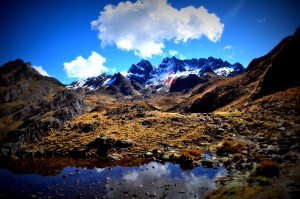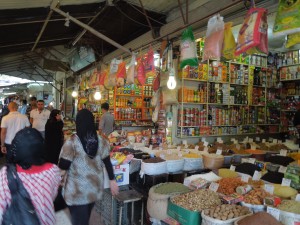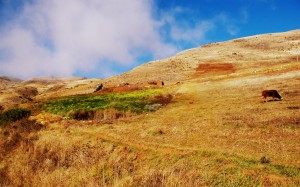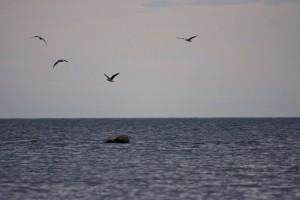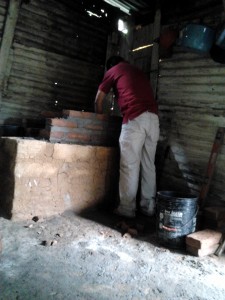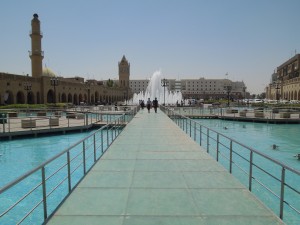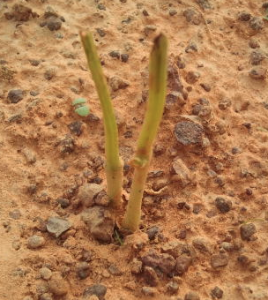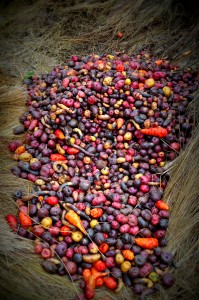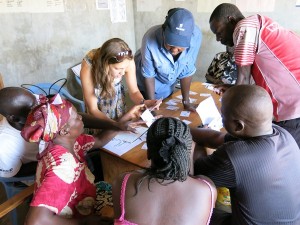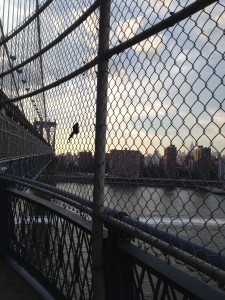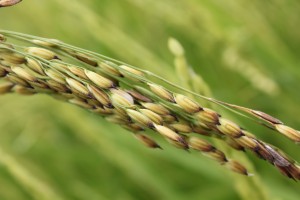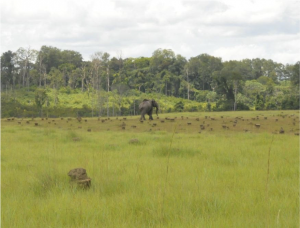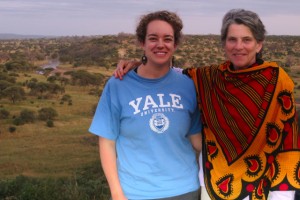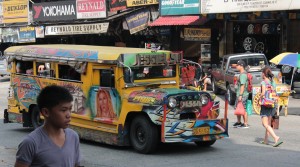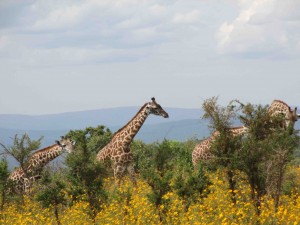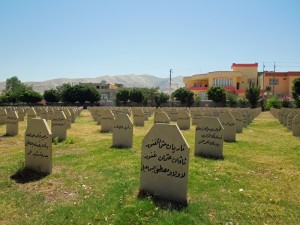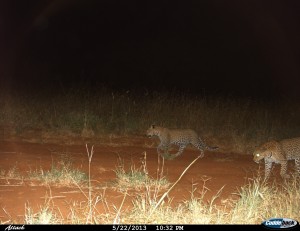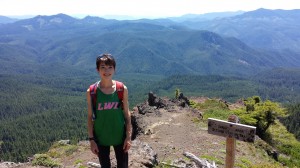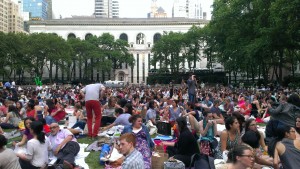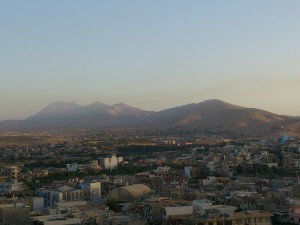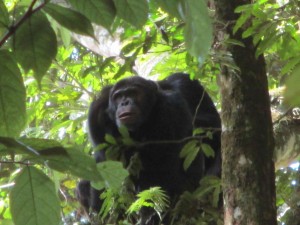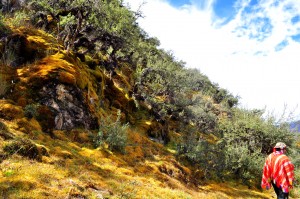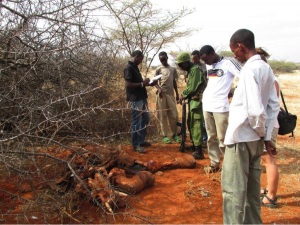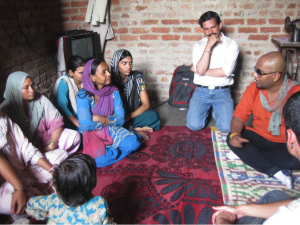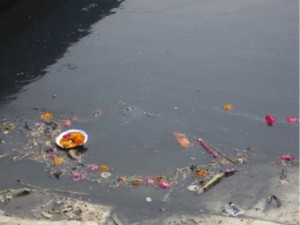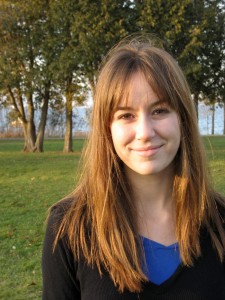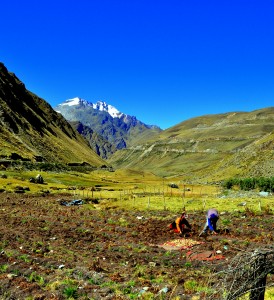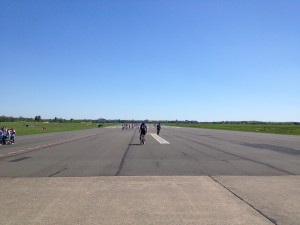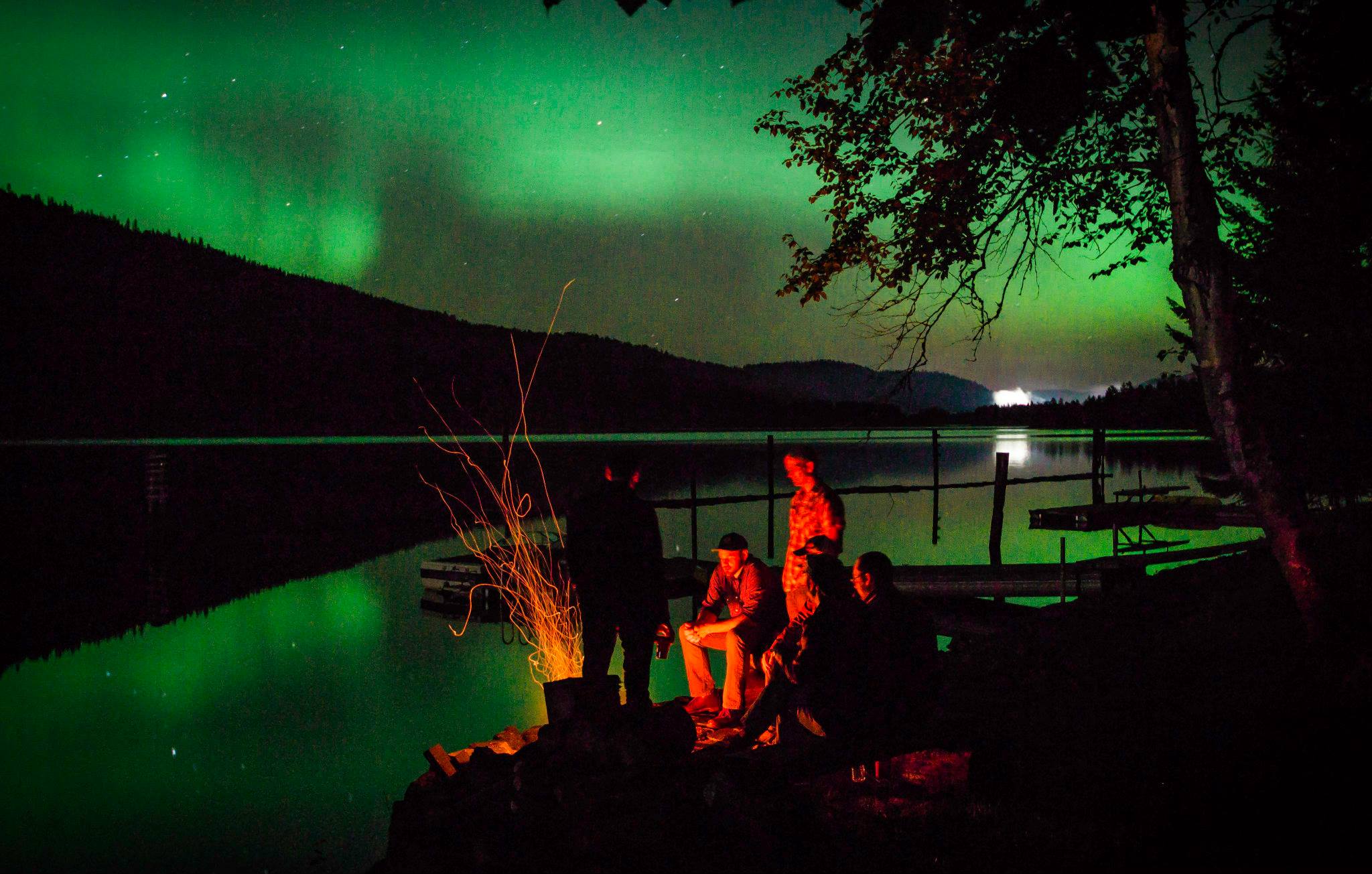
Introduction to the FES Summer Blog
Hi Everybody!
Welcome to the FES summer blog. This blog will be shared by all of FES, our families, friends, and the readers of Sage to serve as a central place for sharing updates and stories as our summers unfold. Ideally, we’ll get a bunch of FESers to post to this blog, sharing travel stories and experiences as they begin their internships or go about their summer research. No formal commitment is needed ahead of time, and you can post as much or as little as you’d like (though we will encourage you to post more than once, so we can get a fuller picture of your summer work).
I know most of you have pretty awesome summers lined up, with travel and internships and research projects. I’m hoping we can use this blog to share our stories as they happen (instead of just giving each other the broad brushstrokes when we come back in the fall), stay in touch, learn from each other’s experiences, and, in the end, have a platform that showcases the range of interests and work at FES. (If this goes well, it could also be a great resource for incoming first-years starting to think about their summers.)
Anyway, we’d love it if you could contribute. Details and submission instructions are at the bottom of this page.
Safe travels, and have a wonderful summer!
Tess (MEM’14)
FESers in Cities
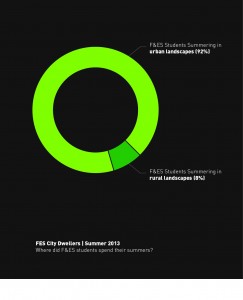 LUCY, the Land Use and Urban Coalition at Yale, sent out a questionnaire to FES students working in cities in order to get a snapshot of their summer lives, from Beijing to Manila, San Salvador to Toronto, New York to New Haven. Read more…
LUCY, the Land Use and Urban Coalition at Yale, sent out a questionnaire to FES students working in cities in order to get a snapshot of their summer lives, from Beijing to Manila, San Salvador to Toronto, New York to New Haven. Read more…
***
Caitlin Doughty in Perú, part 4
While I was in Peru, I found it relatively easy to adopt the culture. I became less stressed and anxious and found myself not focusing on controlling those things that I had no control over – if the bus stopped in a town for an hour (for no apparent reason), I simply took out my granola bar and munched away while watching others go about their business. On the metro in DC, my mind plots revenge as the Red Line is delayed, yet again, due to track maintenance. Read more…
***
Tess Croner in Rwanda, part 4
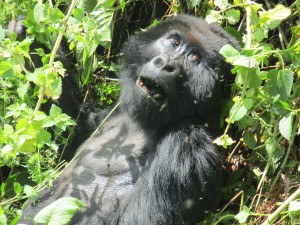 The third and final stop on our study tour of Rwanda brought us to the northwestern corner of the country, where a chain of dramatic volcanic peaks divides Rwanda from Uganda and the Democratic Republic of Congo. On the slopes of these volcanoes, over half (480 of 880 total) of the world’s remaining mountain gorillas make their home. Back in the late 1970s, Amy Vedder and her husband Bill Weber fought to launch a gorilla tourism program in Rwanda. At the time, the Rwandan government was moving forward with a large-scale cattle raising project that would have developed roughly a third of the country’s Volcanoes National Park, and would likely have spelled the end of the mountain gorilla. In a country starved for land and in need of economic development, the national park had little value to government or to the Rwandan people. Amy and Bill thought they could change that. They told the government that money—more money than could be made from the cattle-raising project—could be made from gorillas, if they were protected. They then went about the tricky work of setting up a high-value tourism program that is also sensitive to the health and well-being of gorillas. Read more…
The third and final stop on our study tour of Rwanda brought us to the northwestern corner of the country, where a chain of dramatic volcanic peaks divides Rwanda from Uganda and the Democratic Republic of Congo. On the slopes of these volcanoes, over half (480 of 880 total) of the world’s remaining mountain gorillas make their home. Back in the late 1970s, Amy Vedder and her husband Bill Weber fought to launch a gorilla tourism program in Rwanda. At the time, the Rwandan government was moving forward with a large-scale cattle raising project that would have developed roughly a third of the country’s Volcanoes National Park, and would likely have spelled the end of the mountain gorilla. In a country starved for land and in need of economic development, the national park had little value to government or to the Rwandan people. Amy and Bill thought they could change that. They told the government that money—more money than could be made from the cattle-raising project—could be made from gorillas, if they were protected. They then went about the tricky work of setting up a high-value tourism program that is also sensitive to the health and well-being of gorillas. Read more…
***
Carina Roselli in Iraq, part 4
One of my colleagues told me that my time in Iraq was just the right amount to make me feel weird about leaving, and he was right. I’ve been here long enough not to feel like a tourist anymore, but just shy of feeling like a true resident. I’m finally getting used to the place and starting to live like a local. I know where to buy the best sheep’s yogurt. I know which side of the street to stand on to catch a taxi going in the direction I’m headed. Shopkeepers at the bazaar ask me where I’ve been when I haven’t stopped by in a while. Read more…
Erin Beasley in Bolivia
It was still dark at 6 a.m. when I gathered my things for the day and headed out shivering into the Cochabamba morning, bare toes waiting for the warmth of the sun. I met Jaime on the corner and we climbed in to the red, white, and blue “micro” bus, that would take us south to the main market, la cancha, that was already bustling with vendors setting up their mazes of second-hand clothing, stuffed animals, shoes. Read more…
***
Stephanie Stefanski in Patagonia
Peninsula Valdes was designated as such in 1999, in recognition of its global importance for the protection of marine mammal colonies and breeding grounds, specifically of the southern elephant seals (Mirounga leonina), South American sea lions (Otaria flavescens), and southern right whales. Read more…
***
Erin Beasley in Honduras
About halfway through my bucket shower with mosquito larvae this morning, I thought, Why didn’t I spend this summer with my grandma? She being my go-to symbol of childhood creature comforts: air conditioning, trips to the North Park pool, walking through the mall, soaking up MTV and eating Klondike bars on her couch. Grandma would have loved six weeks of me lounging around her house this summer. Why did I trade that for a gaudy, creepy hotel room in the tropics with no running water and often no electricity? Read more…
***
Carina Roselli in Iraq, part 3
This blog entry tells a few stories about Kurdistan’s water usage. With considerable sadness, I must admit that my observations have not been particularly positive. As I strive to find my professional place in Iraq’s water security endeavors, I am daily reminded that water management is not just an environmental challenge – it’s a cultural one. Read more…
***
Acheampong Atta-Boateng in Ghana
It had not rained since January, although most local farmers had prepared their fields, eagerly expecting the early rains. Meanwhile, the growing season (July-October) was fast approaching. Against warning by residents and technicians, I planted in June. Little did I know that all the lingering, hunger-stricken, indomitable pests were seeking a scapegoat crop to consume. Read more…
***
Caitlin Doughty in Perú, part 3
Fortunato ran across the Ollantaytambo town center to greet me in typical Peruvian fashion, with a kiss on the cheek. A huge smile filled his face as he expressed his relief in finding me (our plans had been less than concrete, yet worked out nonetheless – also in Peruvian fashion). Read more…
***
Marissa Galizia in Kenya
On the airplane flying back home after 10 solid weeks of adventure in Kenya, I wanted to reflect on everything I had seen and done over the past two and a half months. Yet, at the same time, it seemed like too much to think about. It seemed easier just to think about what was ahead with my pending arrival back in the USA. I would need a new laptop charger because my American one broke and I had been using one made for Kenyan sockets ever since; there would be SOM summer assignments to finish, plus two weddings to attend and a new apartment in New Haven to get settled into. Read more…
***
Ben Friedman in New York City, part 2
Each morning I bike from Boerum Hill, Brooklyn (ZIP code 11217) to Manhattan’s Chelsea neighborhood (10011). I cycle through a handful of neighborhoods, over a bridge and a river, and I stare longingly at countless bagelries and coffee shops that I wish I had time to stop at. It’s about a 5.5 mile ride each way. There’s a shower at work and I have deodorant in my backpack. Read more…
***
Alisa Zomer in Manila, part 2
Crispy lechon, fried milk fish, juicy chicken inasal – these are but complements to the main feature on the Filipino supper plate. Taking up nearly three quarters of a meal and most of one’s belly, rice is the star attraction of the Filipino diet. To better appreciate this amazing grain, I decided to travel to northern Luzon to explore the famous rice terraces of Sagada. Read more…
***
Peter Umunay in Gabon
I am writing from Libreville, the capital city of Gabon. This is one of the Congo Basin forest countries where, after one month chopping trees down for my research in DRC, I am working with Proforest (an NGO based in the United Kingdom) on Environmental and Social Impact Assessments (ESIA) and High Conservation Value forests (HCV) before the conversion of 40,000 hectares into palm oil plantation by OLAM International. Read more…
***
Kelly Stoner in Tanzania, part 3
Just a quick post today to note an F&ES connection here in Tanzania! Read more…
***
Alisa Zomer in Manila
Jumping into a jeepney in Manila sucks the unknowing Joe into the rushing, chortling capillary system that is the transport life blood of the Philippines. Reminiscent of the Dick Tracy gangster-style automobiles, jeepneys are remnants of American occupation in the early twentieth century and the archipelago’s role in World War II. Read more…
***
Tess Croner in Rwanda, part 3
After leaving Nyungwe, we headed to Akagera—Rwanda’s savanna park. Before mountain gorillas started making millions for Rwanda, Akagera was Rwanda’s flagship site for tourism. It better fit the traditional model for African tourism, in which people can spot large, charismatic mammals from the comfort of their land cruisers. Read more…
***
Carina Roselli in Iraq, part 2
Somehow I keep stumbling into conversations about war and fighting with both Kurds and Iraqis alike. These conversations have not yet included the word “USA” (surprisingly), but I have nevertheless found myself awkwardly searching for the right thing to say as the conversations trailed off into sorrowful silence, on my part and sometimes on theirs. Read more…
***
Kelly Stoner in Tanzania, part 2
The Land Rover growls and grumbles as we bounce over gullies and ditches, the hum of the engine scattering songbirds when we pass by their perches. Rounding one corner, we skirt so close to the edge of an enormous gaping hole in the ground that I involuntarily lean away from it, as if that will keep us from toppling in. Read more…
***
Marissa Knodel in Oregon
The next time I am asked whether I can be an advocate for people and places with the least information, access to, and ability to obtain a just, healthy, and resilient future, and have a career, I can confidently answer “yes!” Read more…
***
Sonali Bhasin in New York City
At 3 am on Sunday morning, while waiting for the 2 train to make an appearance at a crowded platform in Brooklyn, I sat down next to a group of noisy young tourists my age. Head down, music plugged in, I focused on drowning out the noise around me when yet another garbled announcement about schedule changes played overhead. I looked up, around, and – to my surprise – straight into the friendly smile of one the tourists sitting next to me, with his hand outstretched in a high five. Read more…
***
Carina Roselli in Iraq
The circumstances of my first Iraqi adventure were supremely different from this one. I deployed to Iraq in 2009 as an Army officer and helicopter pilot supporting ground soldiers and Iraqi citizens as they transitioned toward a hopeful self-sustainment. I was here for 10 months, living on an enormous Air Force base, which I was never allowed to leave unless on a mission, in the air, or under the cover of darkness. My helicopter was regularly shot at, my base was occasionally rocketed, and I had very little personal contact with Iraqi citizens. While these experiences inspired me to want to do more for the Iraqi people, they also imprinted my psyche a bit. This and the language barrier have made assimilation into Kurdistan a little challenging. Read more…
***
Tess Croner in Rwanda, part 2
I’m writing from Gisakura, in the tea fields just outside Nyungwe National Park in Rwanda. I’m two weeks into my internship with the Wildlife Conservation Society here, where I’ve mainly been working with the education and outreach team. It has been a rich and interesting experience so far. For my next few posts, though, I’d like to write more about my first three weeks in Rwanda, traveling around the country as part of the conservation study tour led by Amy Vedder, with Yufang Gao and Lily Sweikert. Read more…
***
Caitlin Doughty in Perú, part 2
My days quickly molded to the local culture. I subsisted off of potatoes and coca tea and woke up and went to bed with the rise and fall of the sun (this meant 12 hours of me huddling under spider eggs and reading Game of Thrones; sleep often eluded me). People start each meal with steamed potatoes which they peel and eat plain. They are small and there are various kinds — the most variety is offered at lunch when you’re working on the chacra (farm/garden) because they cook the ones you’ve just harvested. Some are sweet, others more earthy. I liked them all. Read more…
***
Kelly Stoner in Tanzania
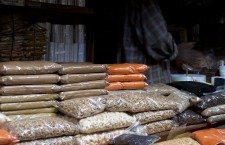 The crowds seem to converge under the massive wood and tin structure looming ahead: the Arusha market. It is here that fresh fruits and vegetables, smoked fish, dried beans and rice, and baggies of aromatic spices are brought, showcased, and sold every day. In the fresh food area, women wrapped in brightly patterned kanga sit on stools in front of their stalls with broad, shallow baskets full of freshly shelled peas in their laps. Gregarious shouts of greeting and warbled Swahili haggling fill the air around me. Riotous colors – piles of orange carrots, red tomatoes, green heads of cabbage, yellow bananas, purple onions, white potatoes – assault my senses. Two stories above, the blue tarp ceiling filters the light and shades everything with a slight shade of blue. Read more…
The crowds seem to converge under the massive wood and tin structure looming ahead: the Arusha market. It is here that fresh fruits and vegetables, smoked fish, dried beans and rice, and baggies of aromatic spices are brought, showcased, and sold every day. In the fresh food area, women wrapped in brightly patterned kanga sit on stools in front of their stalls with broad, shallow baskets full of freshly shelled peas in their laps. Gregarious shouts of greeting and warbled Swahili haggling fill the air around me. Riotous colors – piles of orange carrots, red tomatoes, green heads of cabbage, yellow bananas, purple onions, white potatoes – assault my senses. Two stories above, the blue tarp ceiling filters the light and shades everything with a slight shade of blue. Read more…
***
Yufang Gao in Kenya
“Why do you want to protect the elephants?”
A friend of mine asked me this on Weibo after the death of Bonsai, a 26 years old mother elephant who was shot on my seventh day in the Samburu National Reserve in Northern Kenya. Read more…
***
Valerie Moye in India, part 2
On our second day in Delhi, the US PIRE students learned firsthand about the social and public health implications of poor urban infrastructure. Dr. Tapan Jyoti, a Peer PIRE participant sponsored by USAID, first introduced us to the director of a local office of the Gender Resource Center. The GRC supports women’s empowerment in the community through social, economic, and legal capacity-building. The GRC, which is physically located within the community, serves as a grassroots organization to connect women to government-sponsored health and economic incentives they may never even know about otherwise. Read more...
Valerie Moye in India
The US contingent of this summer’s PIRE participants arrived in Delhi on the evening of May 31. We spent three whirlwind days getting a feel for the Delhi and India before joining our Indian counterparts at the IIT Kanpur campus on June 3rd. The 8 students from the US, each coming from disciplines as varied as political science to environmental engineering, were here to examine some of the most pressing social, health, and environmental challenges faced by urban communities in India. Read more…
***
Tess Croner in Rwanda
I’m writing after my first week in Rwanda, where I’ll be spending the summer—first as part of a study tour led by Amy Vedder (with Yufang Gao and Lily Sweikert), visiting conservation and development projects throughout the country, and then for a two month internship with the Wildlife Conservation Society in Nyungwe National Park. We started the week in the main city of Kigali, meeting with government officials in tourism development and conservation, and then traveled to Nyungwe. The park is spectacular—an island of forest, rich in biodiversity and endemic species, surrounded by a densely populated agricultural landscape. The poverty around the park is some of the most severe in the country, making the case for conservation here particularly difficult. Read more…
***
Caitlin Doughty in Perú
Greetings from Cusco, Perú mis amigos de FES! I am in here to conduct research, though what that entails exactly becomes less and less clear every day. In New Haven, I was so ready to spout off my plans for summer – “I’m going to do research in the Andes of Peru, studying communities that are part of a joint conservation and development project implemented by a local agency. I want to compare the interactions between the local organization and the native communities to literature that focuses on the downfalls of international conservation and development projects.” I don’t even know what that means anymore. Read more…
***
Ben Friedman in the City
Wednesday at Templehof
Here I am at Tempelhof Airport in Berlin, Germany, one week after turning in my final Environmental Campaigns paper in New Haven. I biked here from my brother’s flat in the Kreuzberg area of a city I am quickly becoming extremely fond of. I cycled onto the tarmac from the road surrounding the airport, past the main terminal, and onto the runway. Tempelhof is no longer an operating airport, but rather a public park. Read more…
Submission Guidelines
- Send submissions to sagemagazine@gmail.com.
- No formal commitment to be a blogger is needed, and you can send a first post at any point during the summer (though we’d love it if you started early and wrote more than once!)
- Blog posts can be as short or as long as you’d like
- This blog will be informal—we are not looking for polished submissions
- Content can range from personal/non-work related (i.e., travel or vacation stories), or can, for example, detail the steps and setbacks of setting up a research project. Ideally, we’d have some of both!
- Comments on posts will be greatly encouraged
- When submitting your first post, please send along a brief description of where you are and what you’re doing, and, if you’d like, suggest a title for your summer’s story.
